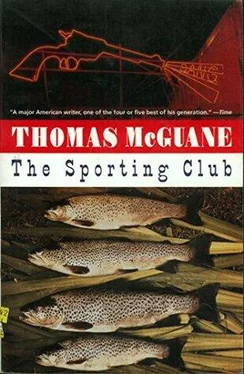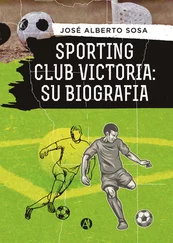* * *
Whatever, Stanton was what Quinn and Janey had in common. So he talked to her now about everything that seemed to bear upon Stanton’s present conduct. Once Stanton told him that he liked it when the tension was up and that was all right; he said that there were a few occasions when his entire brain was in full function and that it was for these moments he lived. Quinn could believe that too; trouble came through the means he chose to achieve this end. Coming back from Bermuda, the daughter of a mountain states beer baron told him that he was using his fruit fork on his fish course; Stanton bellowed a filthy rejoinder. Then, rising in a silence that seemed to expose the noise of air molecules colliding, he said, to the entire contents of the first-class dining room, “You have guessed it. I am a drug fiend,” walked to the door, said, “Why should I hide it any longer? I’m on the stuff. It is as a sickness.” He turned to the door — it was the service door — passed through anyway, tested sauces, frostings, a soufflé batter, plucked the chef’s cheek and complimented him for being a wizard, a wizard, went up on deck and apostrophized the sea in stentorian tones. He then returned quietly to the first-class dining room, where his under-pressure charm dissuaded the captain from a ship’s arrest, and ruefully assured his companions at table that opium was an ancient vice to which he was congenitally liable; certainly his mother’s family, the De Quinceys, should answer for that.
Other officials had been less easy to convince than the captain. His many jailings had forced Harvard to redefine its relationship with civil law; the problem was exercised first at large among the undergraduates, then at the law school and finally in the offices of those who directed the institution. “I’m on pins and needles!” Stanton was heard squealing and the phrase had a resurgence of popularity. Finally, it was ruled the civil standing of a hooligan or petty criminal would have nothing to do with his academic standing; and Stanton remained to graduate.
When he was young, Stanton was most insistent about matters of right and wrong; of this there is a prime example: The members discovered that they couldn’t wallow voluptuously in stocks and shares all week and break brush to grouse-shoot in the northern thicket on the weekend. So, it occurred to them that the really great thing would be to shoot driven game as Harold Macmillan did. Local boys were hired for the dangerous work. Children of members were forbidden as being a more valuable commodity than the native weed. Quinn and Stanton surreptitiously joined the line of beaters to drive the birds out of the swamps to the elegant sports waiting on high ground. Grouse began to fly in low trajectories before them. Sometimes they heard only the dense burr of wingbeat; more often the birds were visible too, brown and boreal, heavy on short blurred wings. There were more than twenty boys with pine boughs as switches, threshing rhythmically through the tugging underbrush and by now the birds were going off everywhere like bits of firecracker, buzzing, going off singly or in coveys and pairs but always forward toward the sports. The shooting started and the beaters got spattered with pellets. The younger boys sat down to cry. Stanton got stung on the face but kept going until he found the gunners. He gathered weapons; at first, by surprise and then at gunpoint.
But as time went by, the justice of his more extreme actions, though he retained his moral tone, became obscure. As a young man, the popularity of the “Gotcha” (derives from “Got you!”) served to spotlight Stanton’s virtues of nerve, craft and originality; such words, anyway, stood behind the deeds of that epoch in Stanton’s life. During the archaic period, any dropping of one’s pants in a public place under any circumstance qualified so long as the principal shouted “Gotcha!” to attract attention to the act. Later, the so-called Multiple Gotcha, commonly employing a speeding convertible, attracted the most approval. Then the “Press,” which involved pressing the exposed buttocks to the rear window of a slow-moving vehicle was admired. Predictably, a point system sprang up, reputations were made and extenuating circumstances honored. “Throwing” a Gotcha while pursued by the police was a maneuver that brought one young competitor (Quinn) near permanent fame. Too, the nature of the victims sometimes necessitated a corresponding raising or lowering of point awards; thus, it was fair to expect a bonus increment for throwing an amazingly explicit or unexampled Gotcha at religious personnel. On the other hand, sly Gotchas, ones that were not forthright in any way, or ones directed at the very old or otherwise unalert, would frequently encounter a docking of points. Who were the competitors and who the judges? They were self-appointed; a moment’s notice would do. Each competitor carried his own lifetime scorecard with a brief description of the play and, opposite, a point award initialed by the witnessing judge, usually another competitor, or “thrower.” For example, an entry might read: “Slow moon hangover shot from right front at nuns and children. 5 pts. v.s.” In this, the Gotcha (the exposed view of naked buttocks was known as “the moon”) had been thrown at a slow rate of speed from a car, the behind actually appearing to hang out of the right front window, at a group of nuns and children. Simple? One more: “Spread-eagle moon from back of reversing convertible directed from extreme close range at opera star Lucia Schifosa (screams). 20 pts. v.s.” Self-explanatory. A historical note is in order: this was the first of Quinn’s competitive maneuvers in the New Year’s mano a mano with Vernor Stanton; in this, the two young men acted as judges for one another (see Stanton’s initials). In passing, it will be noticed that the term “moon” gradually came to be used as a verb; and indeed the whole process was finally called “mooning” and did not at all mean “to pass time in a listless manner” as the Oxford English Dictionary has it.
The New Year’s mano a mano was never finished. Quinn led with the moon above. Stanton countered with a weak shot on foot at, in turn, a druggist, a young couple and a mounted policeman who lashed his horse in futile pursuit. Quinn confirmed his lead with a nice Standing Press against a restaurant window with a point-escalating Narrow Escape. Stanton’s next shot restored the tie and in any other circumstance would have been match point: after a ten-minute delay during which they smoked nervously and silently, Stanton invited Quinn, now judge, back into the restaurant. They sat down unrecognized. Soup was ordered. An instant after it was served, Stanton was pointing from his position atop his chair at the hypothetical fly in the soup; his pants of course were around his ankles while he contrived by an imperceptible movement of his feet to present a “Full Moon,” that is, a 360-degree view; needless to say, the “ dark side of the moon” horrified the multitude!
The escape this time was so close that they were actually caught; and Stanton, whose position was somewhat worse, being pantless, got a bit of work with the nightstick. The policeman grunted “I hate an exhibitionist!” between the blows. They went to jail.
Quinn tried to think. This was all pouring through his mind very fast now. How much of it was getting to Janey? He tried, “Where was I?”
“You went to jail.”
“Did I tell you how the jailbirds tried to initiate us?” Vernor had, she said. Quinn remembered Stanton as being invincible. The jailbirds made a practice of “stomping” sex offenders, which is what they were in the purblind eyes of the law. Quinn remembered Stanton, his shirt around him in strips like Captain Blood, the heavy fists snaking out and making clean resonant connections with chins. Like a sporty club fighter, his feet were light, shuffling, gripping only to set up a lead or a finishing shot. Stanton danced between the built-in benches, never bumping anyone or anything, just unleashing these long, snaky calamities. Afterward, there was peace, finger-paints and byplay with the sheriff, Fredson W. Brown, the arresting officer who, after two weeks of heavy bribing, tried to get the book thrown at them anyway. With the fingerpaints, Stanton did a series of panels illustrating the sheriff committing unnatural acts upon livestock. The last panel purported to be a quote from Fredson Brown: “I like boys and girls,” it said. “but a goat is numero uno.” Quinn and Stanton were found guilty of indecent exposure. The sentence was commuted. They had records. Prints went to the FBI and both would forever afterward be suspects in any sex crime committed in their neighborhoods. Quinn had been interrogated six times, Stanton more often. Stanton was once grilled in connection with the rape and murder of an infant. A year afterward, he was tipped off that he would be questioned about his possible role in a pornography ring. A detective soon appeared camouflaged as a Southern racetrack tout in a Haspel drip-dry madras and summer straw. Working fast, Stanton had the complete works of Jane Austen rebound in separate volumes under the titles of Lewd Awakening, Emma, Businessman’s Lunch, She Let Him Continue and Persuasion. The clever maneuver produced a false arrest; Stanton sued for harassment, collected a clean ten grand he didn’t need and used it to start a wine cellar.
Читать дальше












